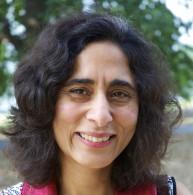Religion and politics in India
Religious inequality and discrimination targeting religious groups is a particularly important issue in many developing countries such as India. Unequal access to resources may translate into resentment and fuel conflict. Similarly, religious identity and inequality may perpetuate discrimination acting as a harbinger for future violence. Religious identity may also encourage favouritism in access and allocation of public goods reinforcing inequalities. A recent paper by Bhalotra et al. (2014) analyses how increases in the share of Muslims in India’s state legislators impacts the effective provision of health and basic education. They find that it improves overall public good provision, without any evidence of religious favouritism. This is consistent with Henderon et al. (2011) who find that Islamist parties in Indonesia are less corrupt relative to other parties.
Similar results were found by Meyersson (2014) in the context of Turkey. Municipalities with a closely elected Islamic mayor have higher rates of female participation in both education and politics relative to secular parties. These studies suggest that religious identity may act as a unifying source that can lead to both socially desirable and undesirable outcomes. This project will examine specific mechanisms that will link religious identity, conflict, political representation and public goods provision.
This project will extend the work of Bhalotra et al. (2014) by eliciting the preferences of voters, with a focus on their policy preferences and the weight they place upon religious identity. To capture this, we plan to implement an extensive survey and lab-in-the-field experiment in Uttar Pradesh, a state with a history of religious conflict. The survey will elicit the preferences and attitudes of voters towards Hindu and Muslim politicians on a range of topics, including public good provision and managing religious tension. The experiment will examine how social norms and coordination behaviour evolve in the presence of Muslim versus Hindu leaders in areas with varying degrees of historical religious conflict.
By comparing preferences towards leaders with different religious identities, we aim to understand if some leaders, irrespective of ability, are more likely to be supported. By comparing preferences in areas with varying degrees of conflict, we aim to understand the relationship being conflict and political preferences, a possible factor that may explain entrenched religious tension.
The experimental tasks, along with the surveys, will serve to improve our understanding of voter preferences and the existence of religious discrimination directed at leaders, this is fundamental to understanding the functioning of democracy which, in turn, provides the institutional foundation for sustained growth.





